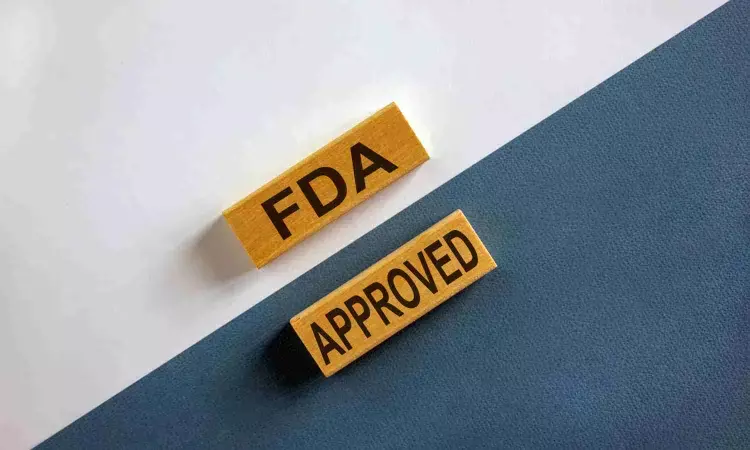- Home
- Medical news & Guidelines
- Anesthesiology
- Cardiology and CTVS
- Critical Care
- Dentistry
- Dermatology
- Diabetes and Endocrinology
- ENT
- Gastroenterology
- Medicine
- Nephrology
- Neurology
- Obstretics-Gynaecology
- Oncology
- Ophthalmology
- Orthopaedics
- Pediatrics-Neonatology
- Psychiatry
- Pulmonology
- Radiology
- Surgery
- Urology
- Laboratory Medicine
- Diet
- Nursing
- Paramedical
- Physiotherapy
- Health news
- Fact Check
- Bone Health Fact Check
- Brain Health Fact Check
- Cancer Related Fact Check
- Child Care Fact Check
- Dental and oral health fact check
- Diabetes and metabolic health fact check
- Diet and Nutrition Fact Check
- Eye and ENT Care Fact Check
- Fitness fact check
- Gut health fact check
- Heart health fact check
- Kidney health fact check
- Medical education fact check
- Men's health fact check
- Respiratory fact check
- Skin and hair care fact check
- Vaccine and Immunization fact check
- Women's health fact check
- AYUSH
- State News
- Andaman and Nicobar Islands
- Andhra Pradesh
- Arunachal Pradesh
- Assam
- Bihar
- Chandigarh
- Chattisgarh
- Dadra and Nagar Haveli
- Daman and Diu
- Delhi
- Goa
- Gujarat
- Haryana
- Himachal Pradesh
- Jammu & Kashmir
- Jharkhand
- Karnataka
- Kerala
- Ladakh
- Lakshadweep
- Madhya Pradesh
- Maharashtra
- Manipur
- Meghalaya
- Mizoram
- Nagaland
- Odisha
- Puducherry
- Punjab
- Rajasthan
- Sikkim
- Tamil Nadu
- Telangana
- Tripura
- Uttar Pradesh
- Uttrakhand
- West Bengal
- Medical Education
- Industry
FDA Approves Crinecerfont for classic Congenital Adrenal Hyperplasia

The US Food and Drug Administration has approved Crinecerfont for treatment of classic congenital adrenal hyperplasia, reducing glucocorticoid doses while maintaining androstenedione control in patients aged 4 and older.It has to be used with glucocorticoids to control androgen levels in adults and pediatric patients with classic congenital adrenal hyperplasia.
“Today’s approval provides an important advance for patients with classic congenital adrenal hyperplasia and highlights the FDA’s continued commitment to advancing effective and safe treatments for rare diseases,” said Theresa Kehoe M.D., director of the Division of General Endocrinology in the FDA’s Center for Drug Evaluation and Research. “The FDA will continue working with patients, drug companies and health care providers to address the unmet medical needs of the rare disease community.”
Classic congenital adrenal hyperplasia is a rare genetic condition affecting the adrenal glands, which produce hormones such as cortisol and androgens. Patients with classic CAH do not produce enough cortisol and produce too many androgens. These patients require high doses of glucocorticoids (more than is typically needed to replace the deficient cortisol) because the glucocorticoids also help to reduce the excess levels of androgens. Crenessity works by reducing excessive adrenal androgen production, which helps reduce the amount of glucocorticoid treatment needed.
Crenessity’s approval is based on two randomized, double-blind, placebo-controlled trials in 182 adults and 103 children with classic CAH. In the first trial, 122 adults received Crenessity twice daily and 60 received placebo twice daily for 24 weeks. After the first four weeks of the trial, the glucocorticoid dose was reduced to replacement levels, then adjusted based on levels of androstenedione, an androgen hormone. The primary measure of efficacy was the change from baseline in the total glucocorticoid daily dose while maintaining androstenedione control at the end of the trial. The group that received Crenessity reduced their daily glucocorticoid dose by 27% while maintaining control of androstenedione levels, compared to a 10% daily glucocorticoid dose reduction in the group that received placebo.
In the second trial, 69 pediatric patients received Crenessity twice daily and 34 received placebo twice daily for 28 weeks. The primary measure of efficacy was the change from baseline in serum androstenedione at week 4. The group that received Crenessity experienced a statistically significant reduction from baseline in serum androstenedione, compared to an average increase from baseline in the placebo group. At the end of the trial, patients assigned to Crenessity were able to reduce their daily glucocorticoid dose by 18% while maintaining control of androstenedione levels compared to an almost 6% daily glucocorticoid dose increase in patients assigned to placebo.
Crenessity has a warning for acute adrenal insufficiency or adrenal crisis, which can occur if patients with underlying adrenal insufficiency who do not also receive adequate doses of glucocorticoid replacement therapy in situations associated with increased cortisol need (i.e., “stress dose steroids”). Crenessity should not be taken by patients with hypersensitivity to Crenessity’s active ingredient or any of its components.
Because Crenessity is metabolized by a specific enzyme, using Crenessity at the same time as drugs that activate that enzyme can decrease the amount of Crenessity exposure and reduce Crenessity’s efficacy. Information about recommended dose adjustments is included in Crenessity’s full prescribing information.
The most common side effects of Crenessity in adults include fatigue, dizziness and arthralgia (joint pain). For pediatric patients, the most common side effects are headache, abdominal pain and fatigue.
The FDA granted Crenessity Fast Track, Breakthrough Therapy, Orphan Drug and Priority Review designations.
The FDA granted the approval of Crenessity to Neurocrine Biosciences, Inc.
Dr Kamal Kant Kohli-MBBS, DTCD- a chest specialist with more than 30 years of practice and a flair for writing clinical articles, Dr Kamal Kant Kohli joined Medical Dialogues as a Chief Editor of Medical News. Besides writing articles, as an editor, he proofreads and verifies all the medical content published on Medical Dialogues including those coming from journals, studies,medical conferences,guidelines etc. Email: drkohli@medicaldialogues.in. Contact no. 011-43720751


